Alan Sharpe – 20-Hour Copywriting Masterclass
$129.00 $39.00
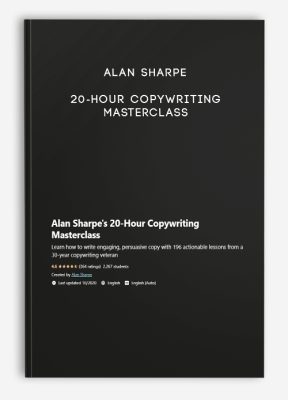
Alan Sharpe – 20-Hour Copywriting Masterclass
Get Alan Sharpe – 20-Hour Copywriting Masterclass on Salaedu.com
Description:
Your success as a copywriter depends on your ability to persuade. As a salesperson behind a keyboard, your job is to persuade people to buy products and services. Your job as a copywriter is not to be clever, or witty, or to win awards. Your job is to persuade.
Welcome to my Copywriting Masterclass. I’m your instructor, Alan Sharpe. I got started as a copywriter in 1989, before the internet, before Google, and before Facebook, Instagram and Twitter. I’ve written in all of the channels—offline, online, outdoor, mobile and broadcast. I’ve written print ads, radio commercials, email newsletters, sales letters, banner ads, product packaging, brochures, factsheets, case studies, slogans and plenty more for Apple, IBM, Bell, Re/Max, Hilton Hotels and hundreds of other clients worldwide.
In this copywriting masterclass, I teach you how to write copy that persuades people to take action. I teach you the tips and tricks I’ve learned in more than thirty years of writing effective, engaging, persuasive copy. At the end of this masterclass, you’ll know how to write copy that generates results. You’ll know how to craft copy that persuades.
COURSE STRUCTURE
This course consists of a whopping 20 hours of video training spread out over 11 modules and 196 lessons.
Module 1: Copywriting for Beginners Part 1 of 3: Seven Vital Questions
The hardest thing about copywriting isn’t knowing HOW to write. It’s knowing WHAT to write. Your challenge as a copywriter isn’t your ability to write compelling copy. It’s your ability to discover insights into what you are selling and who you are selling to. The best copywriters are the ones who ask the best questions.
This module defines copywriting, describes the major types of copywriting, and discusses specialized types of copywriting. It then introduces you to the two main audiences who will read your copy, and describes the types of writing that some people mistake for copywriting. It includes a handy glossary of common copywriting and marketing terms that you need to know before you offer your services as a copywriter.
It goes into great detail about the seven questions you must ask before you can write great copy. We’ll cover what you are selling, where you are selling, who you are selling to, why they should buy, who your competition is, the most important thing to say in your copy, and what you want prospects to do after reading your copy. Section two ends with a lesson on how to research a product or a service so that you can sell it with effective copy.
Module 2: Copywriting for Beginners Part 2 of 3: Headlines & Openers
The most important skill in copywriting is the ability to grab attention. You might have the best product or service in the world, and your promotional copy might be amazing, but if no one stops to read your headline, no one will stop to read your copy. This module teaches you how to do the toughest thing in copywriting—grab and keep attention.
You’ll learn the two things that every headline you write must accomplish. I’ll show you an original way to brainstorm headline ideas that are creative and original. You’ll learn nine ways to write headlines that stand out and grab attention. We’ll cover how to write offline headlines, online headlines, email headlines, and Google text ad headlines.
You’ll discover why your opening lines is the most important line in copywriting, after your headline. We’ll look at the many creative ways you can start your body copy. And I’ll share with you the unique challenge I face in writing opening lines.
Module 3: Copywriting for Beginners Part 3 of 3: How to Persuade
Your success as a copywriter depends on your ability to persuade. As a salesperson behind a keyboard, your job is to persuade people to buy products and services. Your job as a copywriter is not to be clever, or witty, or to win awards. Your job is to persuade.
learn how to give your sales pitch a proven structure
learn how to write using features and benefits
learn how to write copy that overcomes objections
master testimonials, guarantees, deadlines and other tactics that persuade people to buy
discover why your copy needs an offer
discover the two main categories of offers
learn the many ways you can use offers to boost the power of your copy to persuade
learn how to write subheads and photo captions that keep your potential buyers engaged in your copy
learn how to make your copy more effective by making it conversational and personal
Module 4: 30 Copywriting Secrets from the Best Ad Campaign of All Time
In this module you’ll learn how to write copy that grabs attention and motivates prospects to buy. I designed this module for anyone who wants a shortcut to learning how to write great copy. By the end, you’ll be able to write copy that gets noticed, gets read and gets results.
You and I will examine the most successful advertising campaign in history. I’m talking about the newspaper ads for Volkswagen that ran during the 1960s and 1970s. This campaign took a boring, ugly, unknown product and made it one of the most talked-about, popular products in history. I’m going to show you dozens of ads from this campaign. Each one is a case study in how to write clever, powerful, funny, amazing copy.
You’ll see how a successful ad is built. We’ll cover headlines, visuals, opening lines, body copy, format of a sales pitch, testimonials, features and benefits, reader engagement, humor, irony, keys to being original, endings, and plenty more.
This module contains no theory—just dozens of examples of copy that works, and a detailed explanation of why it works.
Module 5: Online Copywriting: How to Write a Profitable Landing Page
A whopping ninety-six percent of people who visit your website are not ready to buy anything during their first visit. If you want them to come back a second time, you need to capture their names and email addresses.
But there’s your challenge. Most website visitors don’t want to give you their name and email address. Website visitors are the online equivalent of retail shoppers who are approached by a salesperson. Offline, the salesperson asks, “May I help you?” And how do you reply? “No thanks, I’m just looking.”
Online, those infuriating pop-up ads ask you for your name and email address, and what do you do? You say, “I don’t think so.” And you click away. This is where lead magnets come in. A lead magnet is something of value that you offer your website visitors in exchange for their contact details. They get the lead magnet. You get the lead. But ONLY if your landing page is effective.
This module teaches you how to use direct-response copywriting tactics to write landing pages for lead magnets. Landing pages are different from other types of web pages. And landing pages for lead magnets are different from other types of landing pages. At the end of this module, you’ll know how to write a landing page that persuades visitors to give you their name and email address. In other words, you’ll know how to write direct-response copy that generates online sales leads.
Module 6: How to Write Persuasive Product Pages
You face three challenges when selling products online:
The sales process starts long before buyers land on your product page
Potential customers can’t handle your product
Potential customers can’t talk to a salesperson (the way they do in a store) before they buy
To meet these three challenges, you need to start selling on Google. You need to write copy on your product pages knowing that this copy will show up in searc
Moduh results. You need to write product descriptions that work with product images, and choose product images that work with your copy. And you need to anticipate the most common (and pressing) objections and questions that your potential buyers have, and meet these head-on in your copy.
To be successful writing copy for online product pages, you also need to master the essential parts of each product page, namely:
page title tags
page description tags
short product descriptions
long product descriptions
image alt tags
offers
upsells
guarantees
This module teaches you how to write copy that sells products online. You learn dozens of online copywriting tips that help you craft effective copy for shopping carts and online store pages.
Module 7: Best-Paying Copywriting Gigs: White Paper Writing
If you want to earn a decent living as a freelance copywriter, you should take on assignments that pay the highest fees. One of those assignments is marketing white papers.
To see how much money you can make writing white papers, just visit the website of Gordon Graham, The White Paper Guy. Gordon writes white papers for a living. He even wrote a best-selling book on how to write white papers. Gordon says you should expect to earn around $6,000 for writing a white paper.
Do the math, and you’ll discover that if you write one white paper a month at $6,000 a pop, you’ll earn $72,000 a year. Not shabby.
This module teaches you how to write effective marketing white papers. You learn:
how to pick a white paper topic that resonates with your target audience
how to research your white paper so that you appear authoritative
how to outline your white paper so that your document has a logical flow and keeps the attention of your reader
how to give your white paper a strong title, so that prospective customers want to read it
I show you how to write each section of the white paper, including the introduction, problem statement, background section, solution section, conclusion and call to action. I give you tips on how to write like a designer, and I describe five mistakes to avoid.
Module 8: Best-Paying Copywriting Gigs: B2B Emails
If you want to earn a decent living as a freelance copywriter, you should take on assignments that pay the highest fees. One of those assignments is business to business emails.
To see how much money you can make writing B2B emails, just visit my website. When a company hires me to write a series of up to six emails, I charge that company $400. I can typically write this email sequence in a morning. Do the math, and you’ll discover that if you write one email sequence a day at $400 a pop, and if you do that five days a week for 50 weeks in a year, you’ll earn $100,000 a year. Not shabby.
This module is divided into four sections.
Section one introduces you to B2B emails as a marketing medium. You learn what they are, how they work, and why writing effective emails has some unique challenges.
Section two is all about cold emails, the ones you send to prospective customers to generate leads. I show you the anatomy of an effective cold email, and show you how to write a cold email sequence.
Section three is all about warm emails, the ones you send to prospective customers who have requested to hear from you. I show you the anatomy of an effective warm email, and show you how to write a warm email sequence.
Section four is the final section. It’s all about the power of drip email marketing. You learn why drip email marketing is so effective at cultivating prospects who are not ready to buy today, but who might be ready to buy in the future.
Module 9: Copywriting Blunders: Do You Make these 10 Common Mistakes?
You know bad writing when you see it. You know that bad writing is flowery and verbose and full of convoluted sentences. You know that bad writing is filled with typos, grammatical mistakes, inconsistencies and poor reasoning.
But do you know what bad copywriting looks like? Do you know bad copywriting when you see it, or when you write it? This module teaches you the ten most common blunders that new and amateur copywriters make. The main benefit of taking this module is that you’ll learn how to spot the ten most common mistakes that wreck otherwise good copy. Once you learn them, you’ll avoid them.
You and I are going to look at 10 copy killers. Here they are:
Slow in getting to the point
No single-minded proposition
No logical flow
Redundancies
Generalities
Features only
Navel gazing
Claims without proof
No offer
No call to action
Some of these mistakes you already know about, and you don’t make them anymore. But a few of these blunders may have crept into your copy unawares. You’ll be glad to learn what they are, and you’ll be glad to know how to avoid ruining your copy with any of these common mistakes.
Module 10: How to Become a Freelance Copywriter.
When I started my freelance copywriting business way back in 1989, I had zero experience as a copywriter. I had no clients, I had no samples, and I had not written a single word of promotional copy, ever, for anyone. And yet within a few weeks of starting out, I was earning money as a freelance copywriter. That was more than 30 years ago. Today, getting started is even easier. And even harder
This module teaches you how to start a freelance copywriting business in a week. I teach you the steps I took to get started. And I teach you the lessons I learned along the way as I freelanced for businesses, agencies and non-profit organizations in North America and around the world. At the end of this module, you’ll know how to launch your freelance copywriting business in seven days.
On day one, you create your portfolio. I tell you why you need a portfolio, what you need in your portfolio, and how to create an effective portfolio from scratch.
On day two, you brand yourself. I teach you how to brand yourself with a company name, a website, and branded email.
On day three, you pick your perfect client. We examine the three major markets for your freelance copywriting services, and I describe the qualities you need to look for in the perfect client.
On day four, you perfect your pitch. I teach you the two ways you need to pitch yourself to potential clients. And I describe the questions you need to answer whenever you are out looking for business.
On day five, you start looking for business. Without paying clients, you’ll go broke. I teach you how to pick up the phone and talk to potential clients. I teach you what to say, when to say it, and how to present yourself professionally so that prospective clients hire you.
On day six, you draft a letter of agreement. I teach you how to quote copywriting jobs, how to write a simple contract, and how to get agreements in writing.
On day seven, you start your first freelance copywriting project professionally. I teach you the things you need to do to appear professional from day one. And I give you helpful tips on how and when to invoice your first client.
Module 11: Business Writing Refresher
Your success in business depends on your ability to communicate. If you can’t write clearly, you won’t get hired. And if can’t write clearly, you won’t last long enough in a position to be considered for promotion. If you want to get ahead in your career, you must learn to write well.
In this module, I pass on to you all that I’ve learned about effective business writing during my last three decades as a writer, editor and proofreader. I show you the most common mistakes that businesspeople make in their writing today—and then I show you how to avoid these blunders in your writing.
Business online course
Information about business:
Business is the activity of making one’s living or making money by producing or buying and selling products (such as goods and services).
[need quotation to verify] Simply put, it is “any activity or enterprise entered into for profit.
It does not mean it is a company, a corporation, partnership, or have any such formal organization, but it can range from a street peddler to General Motors.”
Having a business name does not separate the business entity from the owner, which means that the owner of the business is responsible and liable for debts incurred by the business.
If the business acquires debts, the creditors can go after the owner’s personal possessions.
A business structure does not allow for corporate tax rates. The proprietor is personally taxed on all income from the business.
1 review for Alan Sharpe – 20-Hour Copywriting Masterclass
Add a review Cancel reply
Related products
Business & Marketing
Business & Marketing
Business & Marketing
Jerry Banfield with EDUfyre – Master Entrepreneurship Online
Business & Marketing

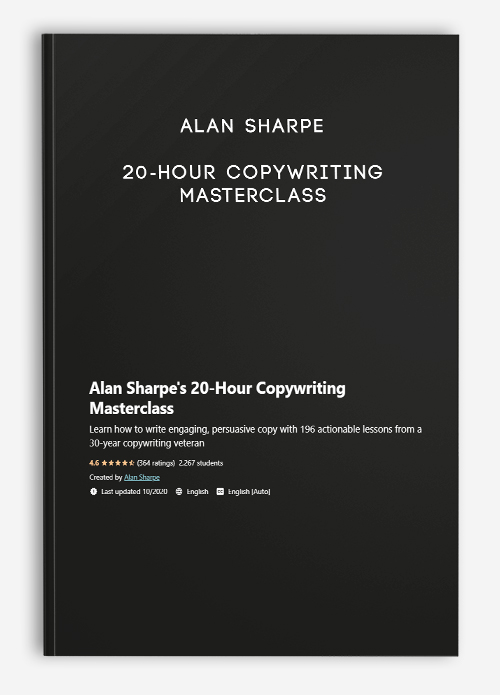
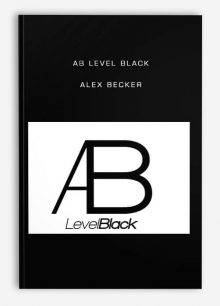
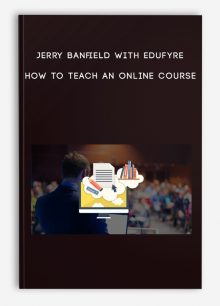
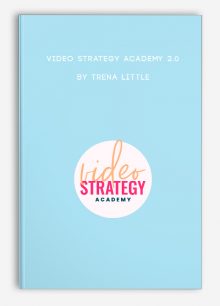
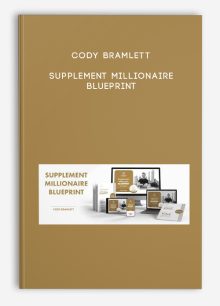
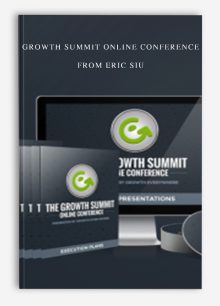

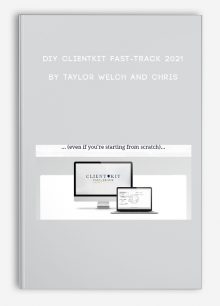
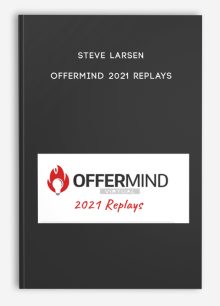
king –
“We encourage customers to contact Customer Service and think twice before making payment. All course contents will be similar to what is from the author.”
Thank you!